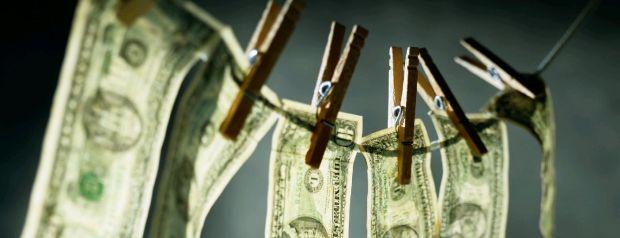Money Laundering and Online Poker
10 years ago

30 Nov
Opponents of online poker have often accused the industry of being a money laundering hotbed for criminals and even terrorists. This might sound a little extreme for somebody who only logs onto their favourite platform on a Friday night to play a few $5 multi table tournaments. However, for those of us who keep up to date with poker industry news, these accusations are not so far out there.
Back in October 2006, the United States government passed the Unlawful Internet Gambling Enforcement Act. The reasons for the change in the law were not all connected to money laundering, but it was one of the central issues. The end result was supposed to be a situation where gambling websites, while not specifically outlawed, would no longer be able to process the necessary financial transactions.
Of course, what actually happened was that a handful of providers continued to service US based customers for almost five more years before the events of April 15th 2011 unfolded and they were forced to shut down. This day later became known as ' Black Friday,' and left us all wondering if this was the beginning of the end.
Today at the close 2015 we can see things much more clearly though. Money laundering hasn't been demonstrated to be a serious problem within online poker, yet from one direction in particular we still face the same tired accusations.
The Coalition to Stop Internet Gambling, which first appeared around late 2013, has been extremely vocal about the pitfalls of gambling in general. While their stated strategy is directed at raising awareness of genuine issues, they appear to have been more than a little disingenuous.
Leading the campaign to outlaw all types of online gambling, is Sheldon Adelson, a man worth close to $30 billion, a major donor to the Republican Party in the USA, and also the owner of a number of brick and mortar casinos!
As the founder, chairman, and CEO of Las Vegas Sands, a casino and resort operating company, Adelson stands to gain considerably if people located in the USA can no longer participate in online gaming.

According to the Las Vegas Convention and Visitors Authority (CVA), only 12% of visitors to Las Vegas came primarily to gamble. This can not be good news for casino owners. Online gaming is partially to blame for this, along with reasons such as the famous gambling city's transformation into a party zone. Years ago casino gambling was the main reason for almost everybody heading to Las Vegas, but the times have changed.
Although the casinos there are still a lucrative business, owners and shareholders are aware that if people can no longer enjoy online poker, slot machines, or a few hands of Blackjack from the comfort of their own home, then they might start to return to the brick and mortar resorts of Nevada.
It can be seen as a cynical view that the motivation behind the leaders of the coalition is purely financial, but we must look at the bigger picture, and understand who has the most to gain if they get their way.
Dr. Friedrich Schneider, a professor of economics at Johannes-Kepler University, Linz, Austria, conducted extensive research into money laundering on unregulated online gambling websites.
His opinion was that the profit was not worth the effort it would take. The volume of money in the whole poker economy is very small compared to other sectors so criminals or terrorists are unlikely to be attracted.
For money laundering using online poker specifically, there are a few problems. To deposit to almost all (maybe all, I can not be sure) poker websites the money has to have arrived via a licensed bank or e-wallet. These institutions already have severe anti money laundering checks in place of their own.
Pre paid credit cards can be used but have low limits in place. Would a high tech criminal be interested in uploading $200 and jumping through all the hoops to avoid a claim by the support department in question that they were deliberately chip dumping? The whole idea looks more and more ridiculous the closer we examine.

Poker players also have to undergo strict identity checks before any cash outs will be authorised. All hands played are tracked by not only the game provider but also third parties. Any attempt at dumping your chips deliberately will be flagged extremely quickly.
On top of all these hurdles, there is also the matter of the amount intended to launder. The majority of players play at relatively small stakes. Any activity at high stakes, or worthwhile money for our theoretical criminal, will have security watching you like a hawk.
This is not to mention that breaking the terms and conditions of your provider is a serious matter that can lead to ALL your funds being confiscated without much hope of redress.
So the conclusion about money laundering in the world of online poker has to be that it will never be worth it. We should do everything we can to avoid outsiders perpetuating the myth that online gaming, in general, is full of dirty money, especially when it's only to further their own aims.






Comments
You need to be logged in to post a new comment